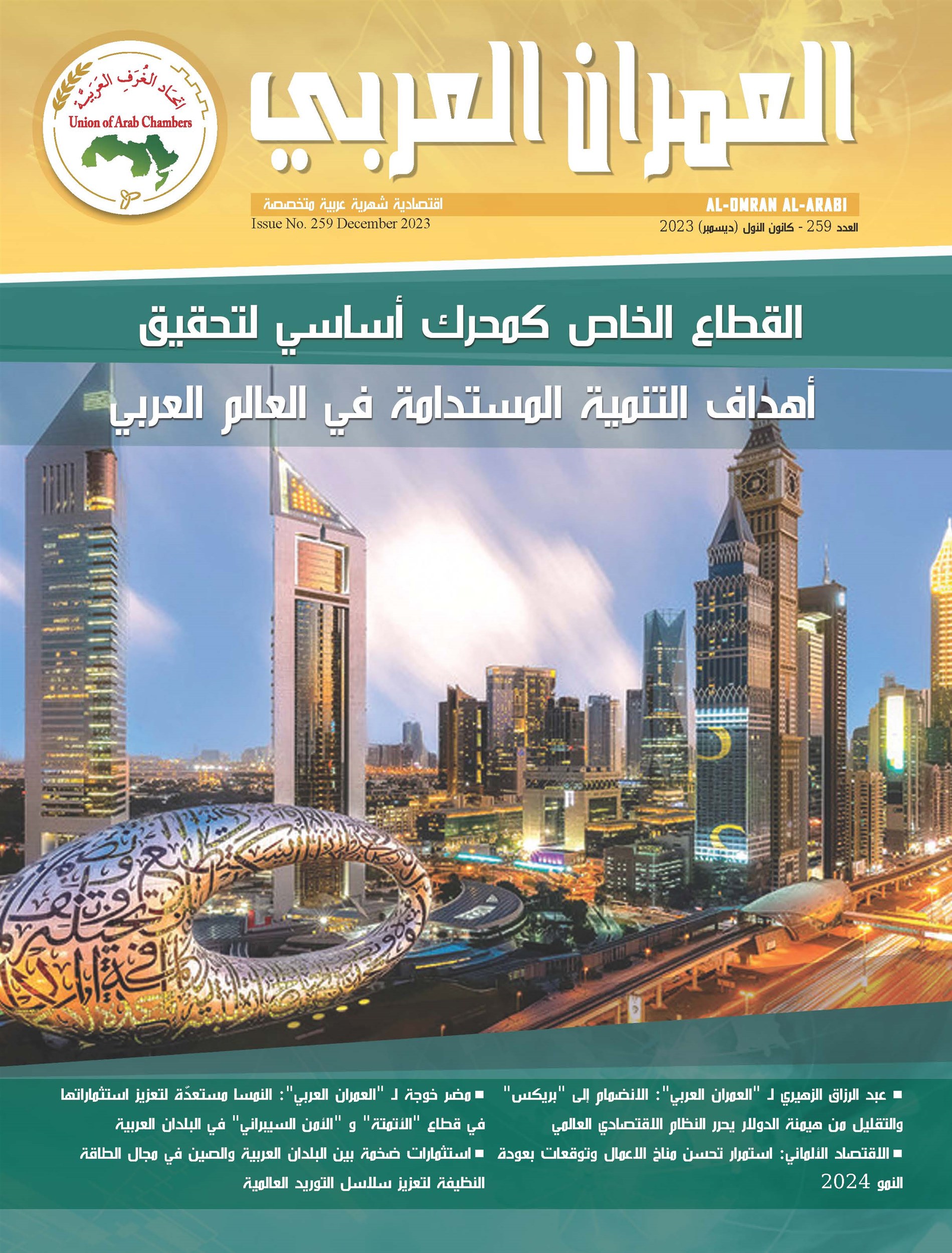
Arab Countries Facing Climate Change: Turning Challenges into Opportunities
and Building a Green Future
At a time when the COP 28 climate summit was held in Dubai, and the positions of the participating countries on a number of issues varied between supporters and opponents of the elimination of fossil fuels, the "Emissions Gap 2023" report issued by the United Nations Environment Program came to warn that 2023 is the hottest year in human history and that the whole world is witnessing "an alarming acceleration in the number, speed, and size of broken climate records."
In light of this reality, there is increasing talk about the importance of enhancing investments in the clean and renewable energy sector to move further towards a “green economy.” In this field, the International Labor Organization reveals that the Arab countries have promising prospects for expanding the role of carbon footprint scanning in providing more jobs, as the region can provide 10 million new job opportunities and accelerate GDP growth to 7.2 percent by 2050 from during carbon removal.
There is no doubt that achieving the goal will pass through the gate of preserving the environment through “resilience” programs through sustainable industrial and climate practices, securing a sustainable future, and increasing opportunities for all. The trend toward new energy has contributed to creating about 13.7 million jobs in the field of renewable energy worldwide.
Middle Eastern countries are active advocates in combating climate change. Guided by global carbon emissions reduction targets, most Middle Eastern countries have actively responded to the “net zero global emissions in the second half of the 21st century” target, they respectively proposed carbon-neutral timelines and roadmap. The UAE proposed achieving “carbon neutrality” by 2050, and the Kingdom of Saudi Arabia, Oman, Bahrain, and other countries proposed achieving “carbon neutrality” by 2060.
Middle Eastern countries are also active players in advancing global climate governance. The International Energy Agency (IEA) report shows that according to the current energy transition plans announced by Middle Eastern countries, by 2030, the total power generation capacity from renewable energy (excluding hydroelectric power) in the Middle East will exceed 192 gigawatts, or 17 times the current level, of which solar power generation will constitute more than 42 percent, and wind power will account for about 35 percent.
So, the rapid development of renewable energy and clean energy will not only help Middle Eastern countries promote energy transition and reduce carbon emissions but will also lay a good foundation for regional sustainable development. In recent years, China and Middle Eastern countries have continued to deepen cooperation in the field of "reducing carbon emissions." At the first China-Arab Summit, joint work on energy security was listed as one of the "eight joint actions" of practical cooperation between China and Arab countries, opening broad horizons for cooperation in the energy transition between China and the Middle East. Currently, renewable energy and clean energy projects established by Chinese companies have become part of the energy networks in the Gulf countries and the North African energy corridor. For example, the Al Dhafra Solar Power Plant PV2 project in the United Arab Emirates has an installed capacity of 2.1 GW, which is the largest single PV power plant in the world after its completion in November 2022.
The 2.6 GW Saudi Shuaiba PV power plant project is the largest single PV power plant project under construction in West Asia and North Africa. In addition, North African countries such as Algeria and Morocco have also become important partners for China. PV Infolink data shows that in the first three quarters of 2023, the Middle East market imported a total of 10.3 GW of Chinese PV modules, an annual increase of 58 percent, of which the Saudi market accounted for 50.49 percent, an increase of more than 4 times compared to the same period in last year.
An energy security community consisting of China and Middle Eastern countries is now taking shape. Addressing climate change is a common issue for all humanity, providing a historic opportunity for China and Middle Eastern countries to further deepen cooperation in the field of green energy. In the future, the two sides can strengthen cooperation in clean energy technology research and development, work together to advance innovation, and improve the efficiency and sustainability of clean energy, offering new paths and practical experiences for global climate governance.
